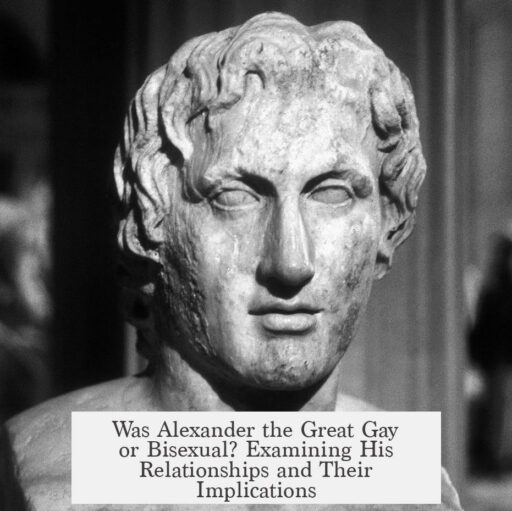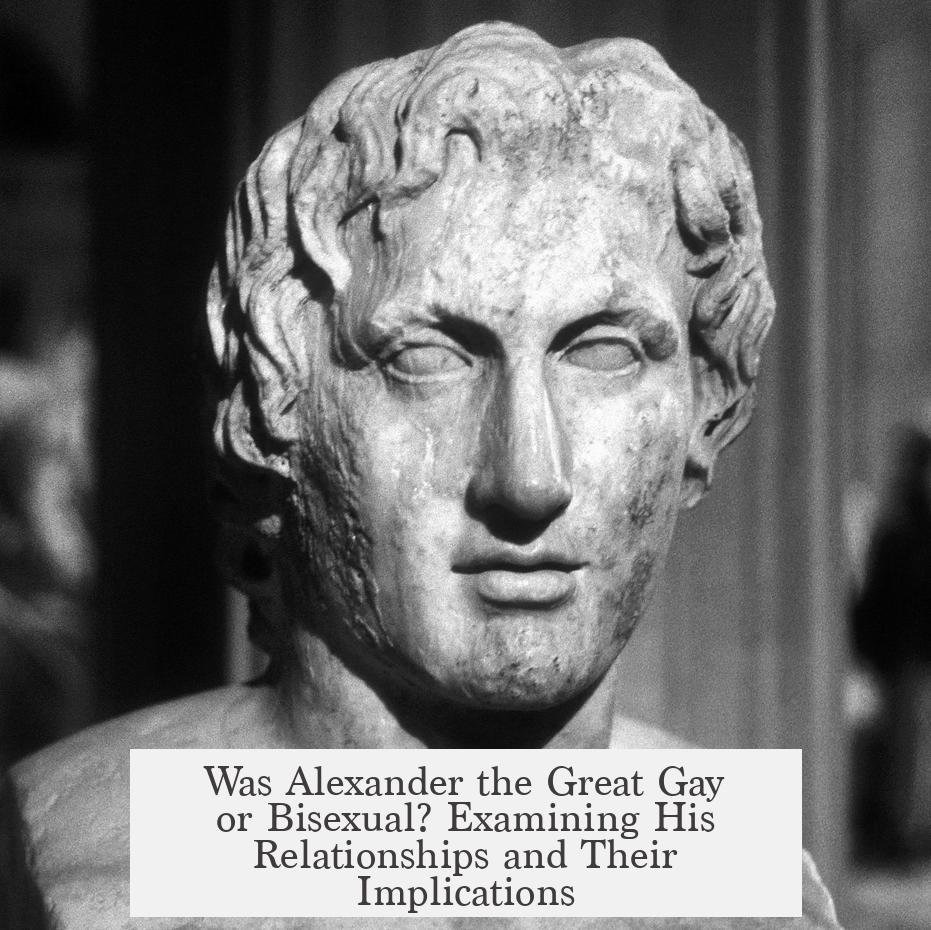Alexander the Great’s sexual orientation remains a subject of historical debate, with no definitive proof confirming if he was gay or bisexual. Historical context shows that in ancient Greece and Macedonia, sexuality did not follow modern categories. Relationships between men were socially acceptable and common in elite circles, meaning Alexander faced no social or political stigma for any same-sex relationships.
Alexander married three women and fathered a legitimate heir, Alexander IV. These marriages indicate clear, documented heterosexual relations. However, much speculation about his sexuality stems from his deep personal connection with Hephaestion, his closest companion and cavalry commander. They shared a lifelong friendship and worked closely on military and political matters.
The intensity of Alexander’s grief after Hephaestion’s death suggests a profound bond. Alexander mourned openly, wept for days, and held an elaborate funeral, granting Hephaestion divine honors unusual even for a ruler’s peer. A tomb discovered in Greece, dated between 325–300 BCE, aligns with this period and possibly belongs to Hephaestion, highlighting his importance.
Despite this, no primary ancient sources explicitly state that their relationship was sexual. The lack of direct evidence prevents a definitive label on Alexander’s orientation. Ancient historical norms did not categorize sexuality the way modern society does, complicating interpretations.
Given the customs of Macedonian and Greek elites, it is plausible Alexander engaged in homosexual relationships beyond Hephaestion. These relationships would have been typical and unremarkable. Still, this remains conjecture without clear historical documentation.
- Ancient perspectives did not fixate on sexual orientation as modern views do.
- Alexander had documented marriages and a male heir, confirming heterosexual relations.
- His emotional bond with Hephaestion was intense but not explicitly sexual in historical records.
- Homosexual relationships were culturally accepted and possibly part of Alexander’s life, as was common in his time.
- Definitive evidence about Alexander’s sexual orientation is lacking; interpretations rely on cultural context and indirect clues.
Was Alexander the Great Gay or Bisexual? Unraveling Ancient Mysteries
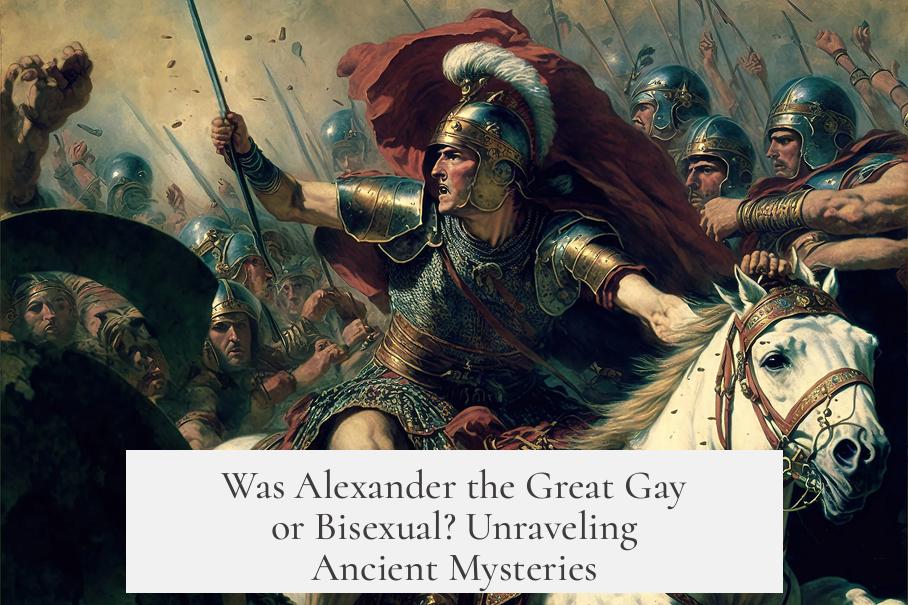
So, was Alexander the Great gay or bisexual? The short answer is: it’s complicated. Seriously, we’re talking about a guy who lived in a time when the modern ideas of sexuality simply didn’t exist. Let’s peel back the layers of ancient culture, historical records, and emotional bonds to see what’s really going on.
First off, picture life in the classical Greek and Roman eras. Sexuality wasn’t boxed into the neat categories we have today. It was fluid, and relationships between people of the same sex were common and accepted. The whole “gay” or “straight” label? That’s a Victorian-era invention from the 1800s. Alexander’s contemporaries wouldn’t have blinked much if he pursued love or companionship in any form.
This fact alone puts a giant question mark on how today’s society tries to label Alexander. The idea of him being gay or bisexual isn’t just about who he loved—it’s about understanding how ancient cultures saw love and relationships.
He Had Wives, He Had a Son—So What Gives?
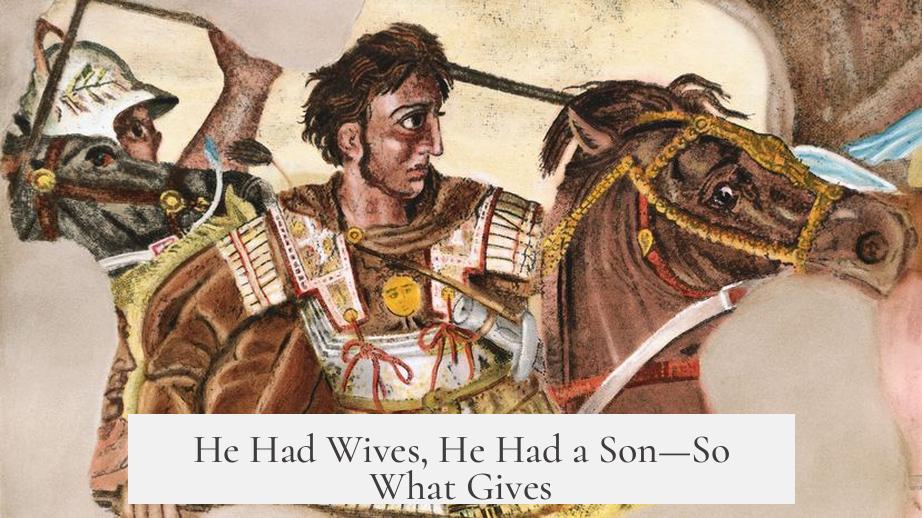
Alexander definitely had relationships with women. He married three times and fathered a son, Alexander IV, who was born after his death. This confirms sexual engagement with women, no mysteries there.
But marriages back then, especially for rulers, often served political alliances as much as personal preference. So, even if Alexander was attracted to women, it wasn’t the whole picture. Was he also interested in men?
The Legendary Bond with Hephaestion: Friendship or More?
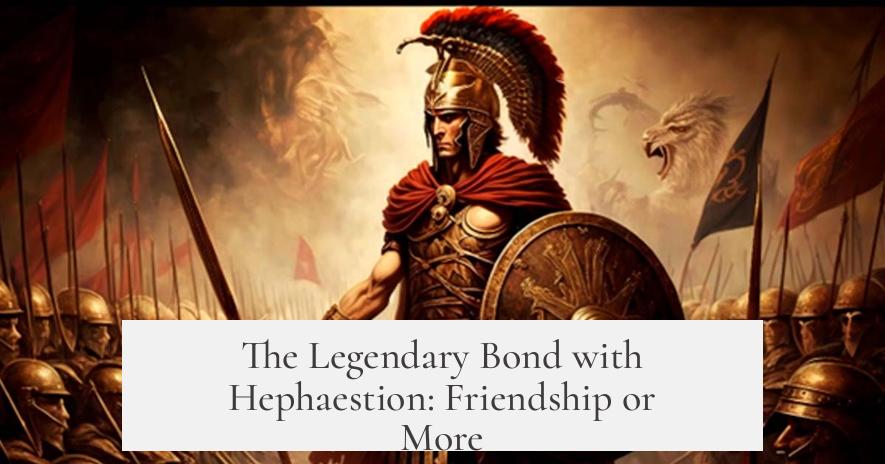
Enter Hephaestion, Alexander’s lifelong friend and cavalry commander. Their relationship is one of history’s most emotionally charged tales. They grew up together, fought battles side by side, and shared countless moments of camaraderie and trust.
“Alexander wept for days when Hephaestion died. He threw himself onto his friend’s body, arranged a funeral more lavish than most kings received, and asked for Hephaestion to be honored as a ‘Divine Hero.’ He even extinguished a special flame in Babylon, a mark of mourning reserved only for royalty.”
That kind of grief is profound and suggests a bond beyond simple friendship. Yet, here’s the twist: no primary sources confirm a sexual relationship between them. Despite centuries of speculation, historians can’t point to hard evidence of romance or sex.
Why the Silence on Sexual Details?
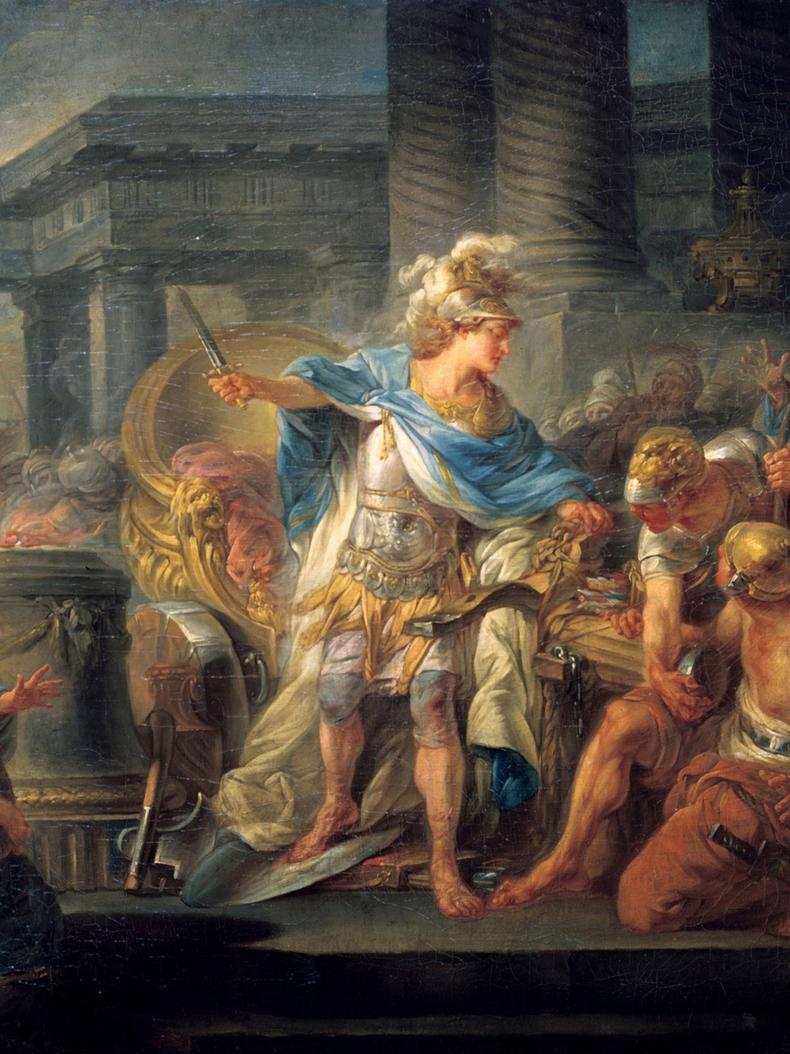
Part of the reason we lack explicit confirmation is cultural. Even if Alexander did have relationships with men, it might not have been recorded because it wasn’t scandalous or noteworthy to the ancient writers in the political or social sense. His connections were likely seen as normal, not sensational.
Furthermore, in a world where homosexuality didn’t carry the stigma it does in some societies today, there was less need to document such relationships with a wink or a nudge.
Can Archaeology Help Solve the Puzzle?

In 2014, archaeologists uncovered a spectacular tomb in Greece, dated to around 325-300 BCE. Its grandeur surpasses even that of King Philip, Alexander’s father. Some believe it’s Hephaestion’s final resting place. The lavish tomb supports Hephaestion’s exceptional status—but, again, it doesn’t spell out the nature of his relationship with Alexander.
Was Alexander Gay, Bisexual, or Simply Human?

Given the norms of his time, it’s likely Alexander had homoerotic relationships, though probably not documented publicly. His intense, lifelong bond with Hephaestion fits into a cultural fabric where men expressed deep emotional and possibly physical affection openly.
But remember: Alexander was also married and had a son. That complexity means calling him strictly “gay” or “bisexual” as we use those labels today risks oversimplifying his life.
Why Does This Matter Today?
As modern readers, why should we care about Alexander’s sexuality? Because understanding his relationships can shed light on how ancient societies functioned. It challenges modern definitions and reminds us that human experience is wide and varied.
More importantly, it encourages us to question how we interpret historical figures through today’s lenses. The past isn’t black-and-white. Neither was Alexander’s love life.
Practical Takeaways From Alexander’s Story
- Remember cultural context before drawing conclusions about historical figures.
- Recognize the fluidity of human relationships across time and cultures.
- Be comfortable with ambiguity; history rarely offers simple answers.
- Celebrate the deep bonds of friendship and love in all their forms.
In summary: Alexander the Great was a complex man living in a complex time. He married women, had at least one son, and shared an extraordinary bond with Hephaestion that suggests emotional intimacy beyond friendship, but no solid proof confirms their relationship was sexual.
Considering the fluid understanding of sexuality in his era, it’s plausible that Alexander engaged in homosexual relationships, but specifics remain elusive. Labels like “gay” or “bisexual” are modern constructs and don’t comfortably fit the ancient world.
So, what do you think? Does Alexander’s story challenge your views on sexuality and history? Or does it show us that love, in any form, transcends time and labels?
